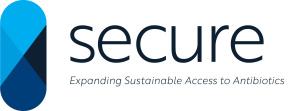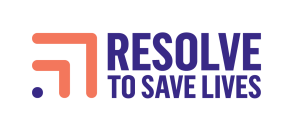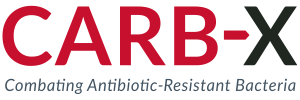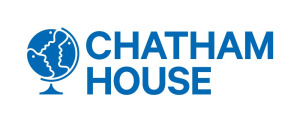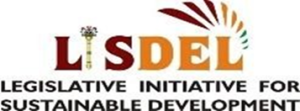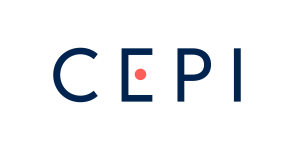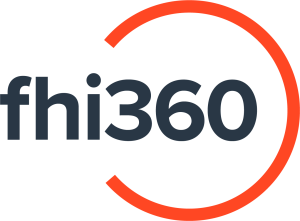We’re excited to announce that our Sponsored Breakfast and Lunch sessions are now available for a sneak peek! With 5 breakfasts and 6 lunches to choose from, you have plenty of options to explore. Take a look this week to preview the offerings before tickets officially go on sale next week.
Remember, tickets will be allocated on a first-come, first-served basis, so be sure to act fast once they’re launched! Please keep in mind that attendees are limited to one breakfast session and one lunch session per day, so choose wisely!
We’d like to extend a huge thank you to our sponsors for these amazing sessions, each covering fascinating subject matters. We can’t wait for these events to unfold!
Wednesday Breakfast Sponsored Sessions
Addressing the antibiotic access challenge: Market shaping interventions for AMR
Organised by GARDP/SECURE
When: Wednesday 19 June 2024, 7:00 am – 8:00 am
Venue: International Convention Centre Sydney, Room C3.4
What’s Included: Breakfast on the Go – Morning Favourites, Morning Boost Fruit Smoothies, Dairy Free Breakfast Drinks or Savoury Bites
Enquiries: Paul Field
Email: pfield@gardp.org
Access to appropriate antibiotic treatments can be lifesaving. Unfortunately, not only is the pipeline for new antibacterial drugs to address the growing burden of antimicrobial resistance (AMR) inadequate, even after antibiotics are successfully developed, they are not necessarily accessible. The market for new antibiotics to treat drug-resistant infections is nascent, particularly in low-resource settings. As new treatments to tackle AMR become available, access is limited or delayed by several market hurdles including low and uncertain demand, high-prices and concerns around appropriate use. For small and unpredictable but growing markets, it is important to carefully balance supply and demand, support sustainable and affordable access, and incentivize appropriate use through market interventions such as coordinated procurement and stockpiling.
This engaging Panel discussion hosted by GARDP and SECURE will gather experts to share their experiences in market shaping, describe how market shaping interventions in other disease areas may be applied to AMR, and discuss potential interventions that may improve sustainable, reliable, and affordable access to critical antibiotics.
A Transformative Approach to Global Health Security: The Carter Center’s Experience
Organised by The Carter Center
When: Wednesday 19 June 2024, 7:00 am – 8:00 am
Venue: International Convention Centre Sydney, Room C4.2
What’s included: Continental Breakfast
Enquiries: Anyess Travers
Email: anyess.travers@cartercenter.org
The proposed panel will share The Carter Center’s (TCC) experience promoting GHS by serving neglected populations in remote areas. Session participants will gain valuable insight and a comprehensive understanding of how TCC addresses challenges to GHS by leveraging community engagement, education, capacity strengthening, building collaborative partnerships with local governments and other organizations, and fostering peace in conflict-prone areas through an innovative “Peace through Health” framework. TCC’s past successes, current initiatives, and future opportunities will be showcased. The session aims to inspire collaborative efforts for a more secure and peaceful global health landscape by diving into the following topics:
- Last Mile Communities: The Carter Center brings visibility to underserved areas, mobilizes and trains hundreds of thousands of community health workers and village volunteers and Ministry of Health staff, and improves infrastructure by supporting regular disease prevention delivery services (medicines, water filters, bed nets).
- Peace-health nexus work to support GHS: TCC’s Conflict Resolution Program and Guinea Worm Eradication Program (GWEP) have been working in the Mopti region of Mali to provide access for public health workers in communities where there has historically been insecurity.
- Working with Internally Displaced and Refugee Populations: The Carter Center’s Trachoma Control Program has implemented trachoma interventions in refugee and internally displaced camps in multiple locations. These efforts have shown that it is possible to implement NTD programming in such settings despite the challenge of population movements and insecurity.
- Dr. Angelia Sanders, Associate Director – Health Programs, Trachoma, The Carter Center, Atlanta, GA
- Dr. Anyess Travers, Associate Director of Special Health Projects – Health Programs, The Carter Center, Atlanta, GA
- Dr. Claver Pewo Lotsa Momo, Project Coordinator – Cameroon Country Office, World Health Organization Cameroon
- Ms. Madeline Warman, Program Associate, Mali – Peace Programs, Conflict Resolution, The Carter Center, Atlanta, GA
When: Wednesday 19 June 2024, 7:00 am – 8:00 am
Venue: International Convention Centre Sydney, Room C4.4
What’s included: Continental Breakfast
Enquiries: Meg Rush
Email: margaret@gryphonscientific.com
Shortcomings related to personal protective equipment (PPE) were widely recognized to exacerbate the toll of the COVID-19 pandemic, including the toll on vital workers in healthcare and critical infrastructure. However, because the shortcomings were varied and had logistical, engineering, biomedical and societal underpinnings, the most effective interventions to improve PPE were unclear. Over the past 18 months, we conducted a study of PPE technologies, supply chains, and use to understand the weaknesses in the system and create recommendations for future Pandemic-Proof PPE. The study included the creation of infection models for multiple exposure categories; interviews with regulators, manufacturers, distributors, and users of PPE; and a set of recommendations to improve the PPE production ecosystem over time. The final recommendations focus on opportunities for policy adjustments and funding to ensure functional, protective, affordable, and available PPE for the next pandemic. These systemic adjustments require multisectoral cooperation and a sustained effort to coordinate across industries, nations, regions, and organizations.
Wednesday Lunch Sponsored Sessions
When: Wednesday 19 June 2024, 12:45 pm – 2:15 pm
Venue: International Convention Centre Sydney, Room Cockle Bay 1
What’s included: Sydney Eats – Stand up style lunch of hot and cold items
Enquiries: Christopher Richardson
Email: crichardson@resolvetosavelives.org
Epidemic preparedness works. And every day, around the world, responsive health systems are helping to keep millions of lives and livelihoods safe. Join us for a sponsored lunch followed by a keynote speech and panel discussion exploring this year’s “Epidemics That Didn’t Happen” report, and learn how responsive health systems in Africa, Asia and Europe partnered with communities, prioritized timeliness metrics, protected health care workers and heeded climate warnings to stop deadly outbreaks in their tracks.
Keynote:
– The Honorable Yolanda Deng, Minister of Health, South Sudan
Panel:
– Maya Schaerer, International Federation of the Red Cross and Red Crescent Societies
– Otto Helve, Finnish Institute for Health and Welfare
– Joanne Mariasua, Ministry of Health Vanuatu
– Amanda McClelland, Resolve to Save Lives
Moderator:
– Dan Ilic, A Rational Fear
This sponsored lunch is open to all registered GHS2024 delegates. We particularly invite delegates focusing on policy, planning and results.
Antimicrobial Resistance; Access challenges and addressing the stagnating pipeline of new products in development
Organised by MTPConnect and CARB-X
When: Wednesday 19 June 2024, 12:45 pm – 2:15 pm
Venue: International Convention Centre Sydney, Room C3.6
What’s included: Sydney Eats – Stand up style lunch of hot and cold items
Enquiries: Andrew Bowskill
Email: andrew.bowskill@mtpconnect.org.au
The panel will discuss in more detail the critical role antibiotics play in global health security, and discuss the market failure that has resulted in the lack of investment in antibiotic R&D. It will examine the global antibiotic pipeline and explore the roles of both ‘push’ and ‘pull’ incentives to impact that pipeline. It will also examine initiatives such as the NICE program and PASTEUR Act, as well as the impact of public-private partnerships focused on the R&D of new therapies, including CARB-X and the AMR Action Fund. The panel will also look at what Australia can do to contribute to global efforts to combat AMR.
Strategic stockpiling for supply chain resilience: Considerations for health emergency preparedness and deterrence by denial
Organised by Chatham House & Global Health Security Fund
When: Wednesday 19 June 2024, 12:45 pm – 2:15 pm
Venue: International Convention Centre Sydney, Room C4.4
What’s included: Sydney Eats – Stand up style lunch of hot and cold items
Enquiries: Karishma Kurup
Email: kkurup@chathamhouse.org
The pandemic and ongoing armed conflicts have exposed the vulnerabilities of the global supply chain for medical countermeasures and materials, making it imperative to improve preparedness and resilience in the event of a health crisis, whether naturally occurring, deliberately caused or accidental. The strategic stockpiling of countermeasures, and consideration of how these resources can be effectively managed and swiftly deployed, is an important component of preparedness.
It is unlikely that the world can rely on a handful of countries to share their national stockpiles with others and international cooperation will be necessary for effective and efficient response in the context of limited supplies. A considered approach to strategic stockpiling is therefore required to ensure all countries can successfully respond.
Join Chatham House and The Global Health Security Fund over lunch for an interactive expert panel discussion on the role of and approaches being taken to strategic stockpiling in preparedness and response, how international cooperation is playing out in this area, and the key considerations for effective efforts.
Thursday Breakfast Sponsored Sessions
When: Thursday 20 June 2024, 7:00 am – 8:00 am
Venue: International Convention Centre Sydney, Room C4.2
What’s included: Continental Breakfast
Email: contact@717alliance.org
This networking breakfast is hosted by the 7-1-7 Alliance, a country-led initiative to accelerate the achievement of the 7-1-7 target for outbreak detection and control, and reserved for its country partners.
This is an invitation-only event open to country partners of the 7-1-7 Alliance.
When: Thursday 20 June 2024, 7:00 am – 8:00 am
Venue: International Convention Centre Sydney, Room C4.4
What’s included: Breakfast on the Go – Morning Favourites, Morning Boost Fruit Smoothies, Dairy Free Breakfast Drinks or Savoury Bites
Enquiries: Leanne Joyce
Email: joycel-consultants@mmv.org
Despite the vast achievements in treatment options and prevention measures, malaria remains a global health threat.
This event aims to bring together key expert speakers in a lively discussion on this key global health topic:
- Fostering equitable and inclusive responses to meet the needs of under-served populations
- Revamping efforts to eliminate malaria and other poverty-related diseases
- Highlighting the discovery, development and delivery of innovative medicines to cure and protect vulnerable populations
- Building capacities to prepare against epidemics and the next pandemic through a diversity, equity and inclusion lens
Strengthening health security policy, investment and institutional frameworks at national and subnational levels: lessons from CSO-led initiatives in Nigeria
Organised by LISDEL & Global Health Advocacy Incubator
When: Thursday 20 June 2024, 7:00 am – 8:00 am
Venue: International Convention Centre Sydney, Room C4.3
What’s included: Breakfast on the Go – Morning Favourites, Morning Boost Fruit Smoothies, Dairy Free Breakfast Drinks or Savoury Bites
Enquiries: Ademuyiwa Ayobamidele
Email: a.ademuyiwa@lisdel.org
The Prevent Epidemics (PE) Program, a local CSO-led intervention, has partnered with government actors to significantly improve and strengthen investment, policy and institutional arrangement for epidemic preparedness and response (EPR) in Nigeria, over the last four years. With various evident valuable outputs and outcomes, the PE Program has been recognized globally. This session will highlight innovative approaches adopted by the Program to improving health security outcomes in a decentralized system, contribute to the regional and global knowledge hub and galvanize future action for EPR.
Workshop Objectives
- Share insights on the status of epidemic preparedness and response (EPR) financing, policy architecture and outcomes pre–PE Program intervention era in Nigeria.
- Highlight roles and contributions of local CSOs led-health security initiatives and lessons from key interventions with support from the PE Program.
- Attendees will learn about the roles of local CSOs and how they can be supported towards achieving high impact interventions in strengthening countries’ health security apparatus.
- Attendees will learn about Nigeria’s citizen-led Health Security Financing Accountability Framework, how it has become an important tool for evidence generation and how it has engendered strategic engagements for improved health security investments, PFM processes and outcomes.
- Share key achievements, knowledge and lessons from adaptable initiatives at the subnational levels for decentralized systems and linkages towards strengthening national, regional and global preparedness for health threats.
Thursday Lunch Sponsored Sessions
When: Thursday 20 June 2024, 12:30 pm – 2:00 pm
Venue: International Convention Centre Sydney, Room C4.4
What’s included: Sydney Eats – Stand up style lunch of hot and cold items
Enquiries: Anyess Travers
Email: anyess.travers@cartercenter.org
Global health security efforts aim to strengthen public health systems globally to combat infectious diseases. Crucial aspects involve addressing populations mental health and reinforcing mental health systems. This panel will share perspectives on ensuring and leveraging populations mental health for global health security, including current gaps and opportunities.
The discussion will explore diverse approaches to integrating mental health into global health security efforts:
- The Carter Center’s Mental Health Digital Data Dashboard – a tool designed to assess behavioral health system readiness and facilitate crisis response, promoting data-driven decision-making in Liberia, enhancing the capacity of the behavioral health system to handle emergencies.
- Equipping healthcare workers to address mental health needs and prioritizing their own mental health.
- Strengthening policies and protocols for integrated care and championing mental health in global efforts.
- Mr. Benedict Dossen, Mental Health Director – Health Programs, The Carter Center, Liberia
- Dr. Ikenna Ebuenyi, Assistant Professor, University of Pittsburg
- Dr. Hafsa Sentongo Lukwata, Director of Mental Health, Ministry of Health of Uganda
- Moderator – Dr. Anyess Travers, Associate Director of Special Health Projects – Health Programs, The Carter Center, Atlanta, GA
Strengthening Lab Biosafety and Biosecurity: Performance-Based Standards and a Roadmap Towards Implementing ISO35001
Organised by CEPI and Global Affairs Canada
Time: Thursday 20 June 2024 12:30 pm – 2:00 pm
Venue: International Convention Centre Sydney, Room Cockle Bay 1
What’s Included: Sydney Eats – Stand up style lunch of hot and cold items
Enquiries: Nancy Lee
Email: Nancy.lee@cepi.net
As the world recovers from COVID-19 and focuses on pandemic prevention, preparedness and response frameworks to ensure the world is better prepared, a review of international biosafety and biosecurity frameworks and standards is key to prevention. COVID-19 significantly increased international collaboration in R&D in emerging infectious disease and sharing of pathogens. Yet, competencies for high containment laboratories vary across countries and settings. There is a need to develop common international standards for biosafety competence for high containment facilities to minimise risk of unintentional or unauthorised release and catalyse broader scientific partnership and collaboration.
This side event, co-hosted by CEPI (The Coalition for Epidemic Preparedness Innovations) and Global Affairs Canada, will explore potential biosafety and biosecurity risks in a post COVID-19 pandemic world, highlight the current global landscape for laboratory biosafety and biosecurity, and identify opportunities to accelerate development and implementation of performance-based standards for laboratory biosafety and biosecurity.
The opportunity to register for this event will go live May 29.
Achieving Impact at the Intersection of Primary Health Care and Global Health Security: Leveraging Experiences from LMICs
Organised by FHI360
Time: Thursday 20 June 2024 12:30 pm – 2:00 pm
Venue: International Convention Centre Sydney, Room C3.6
What’s Included: Sydney Eats – Stand up style lunch of hot and cold items
Enquiries: Bola Oyebanji
Email: ooyebanji@fhi360.org
The COVID-19 pandemic significantly affected the ability of the primary health care system to deliver basic health services to their people in low- and middle-income countries. However, countries with more robust laboratory networks, more effective surveillance, sufficient numbers of trained members of the workforce, and stronger primary health care systems were in a better position to mitigate the impact of the pandemic. While effective preparedness for future infectious disease outbreaks requires investment in both global health security and health system strengthening, efforts will be squandered without coordination, collaboration, and integration of the two.
Objectives:
- Highlight the importance of integration of global health security interventions with the primary health care systems strengthening efforts in LMICs under the larger umbrella of one health approach.
- Discuss best practices, opportunities, and experiences from LMICs.
- Welcome
- GHS2024
- Statement
- Registration
- Registration
- Accommodation
- Calls For Abstracts
- Calls For Abstracts
- Travel Bursaries
- Information
- About Sydney
- Latest News
- VISA information


